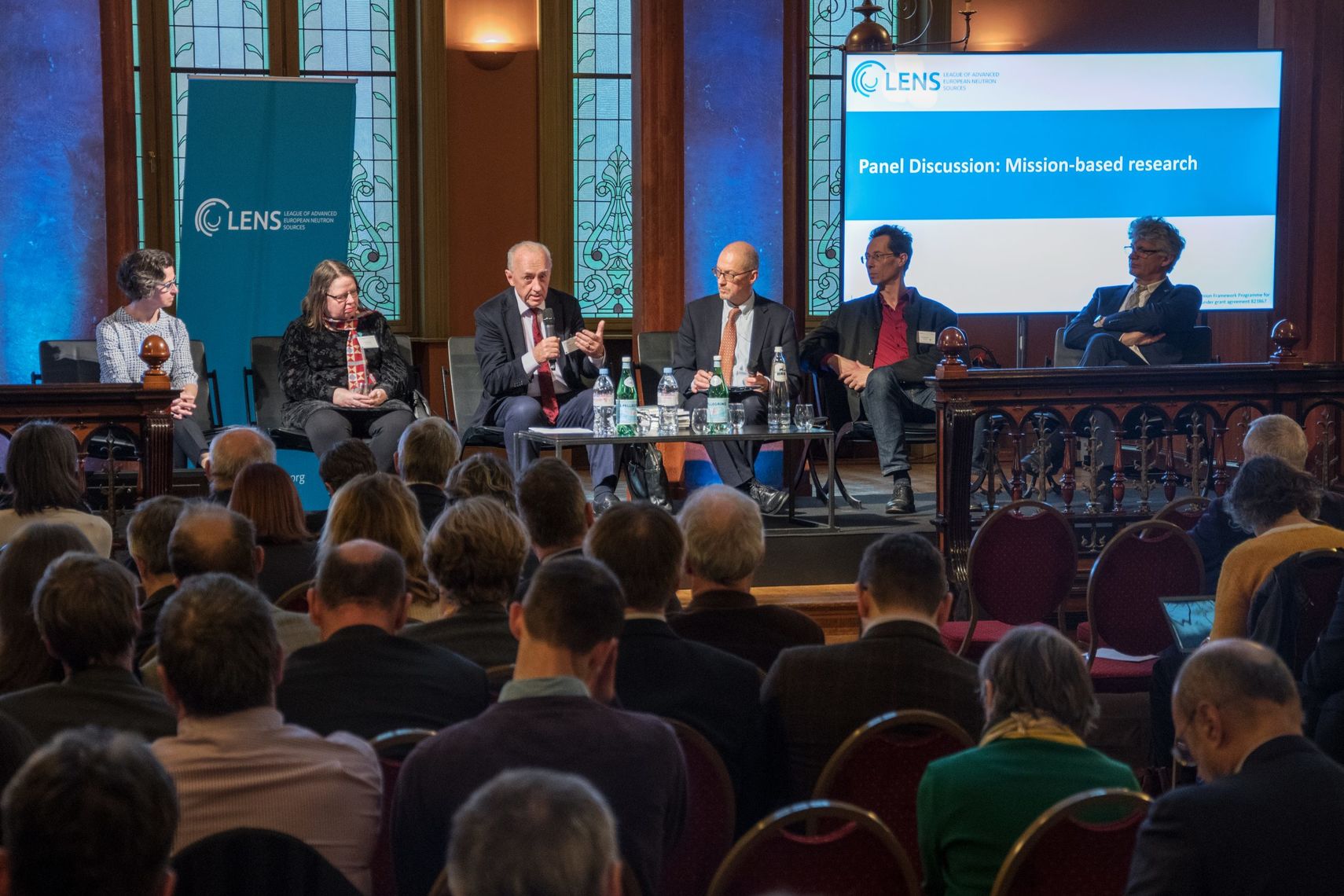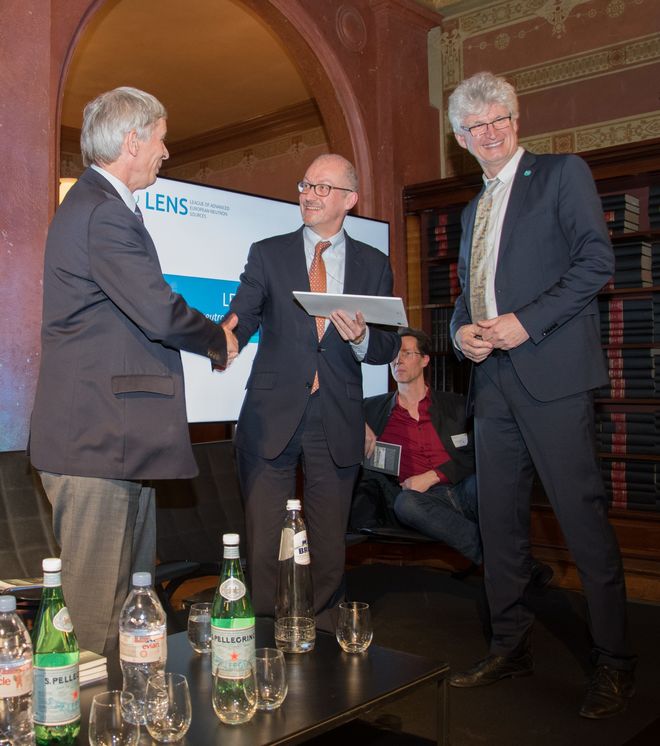
The League of Advanced European Neutron Sources' (LENS) Science & Policy Colloquium held in Brussels on 11 February, highlighted the vital scientific contributions that research with neutrons will make in support of the European Commission’s Green Deal and the European Commission’s proposed €100 billion framework programme, Horizon Europe.
BRUSSELS: Focusing on the theme, 'How neutrons contribute to mission-based research', the recent LENS Colloquium, sponsored by the Horizon 2020 project BrightnESS², led by ESS, brought together members of Europe’s neutron science community, several European Commission representatives, and representatives from LENS’ sister consortium League of European Accelerator-based Photon Sources (LEAPS).
In the context of Horizon Europe, which proposes to dedicate funding toward the achievement of five soon-to-be-defined missions in the areas of cancer, adaptation to climate change, oceans, seas and inland waterways, climate-neutral and smart cities, and soil health and food, science research infrastructures have a central role to play in accelerating the application of new knowledge arising via research.
“There is a significant evolutionary change underway for both neutron science in Europe as well as in how the European Union views the role of research infrastructures,” said ESS Director General, John Womersley, speaking at the event.
How Europe’s research infrastructures can best position themselves to contribute to these missions was the underlying motivation for the colloquium, which served to shine a light on the ways in which this was already being done, and those areas where adaptation would be necessary.
The League's position paper on the Europe’s Green Deal, presented to the European Commission’s Adam Tyson by LENS' Chair, Helmut Schober and LENS Vice-Chair, Robert McGreevy, states that “The development of new or improved green materials and processes is a central challenge for the Green Deal. The network of large-scale analytical facilities which allows European scientists to conduct sophisticated and innovative investigations into new materials and processes is undoubtedly one of Europe’s outstanding assets in meeting this challenge".
"These facilities provide scientists with access to state-of-the art instruments as well as all the services they need - from sample preparation to data interpretation - to gain an in-depth understanding of the properties of new materials,” the position paper asserts.
According to a 2019 LENS' Position Paper on Horizon Europe, "research with neutrons has played a role in finding scientific and technical solutions to societal challenges. It is self-evident to the members of LENS that neutron facilities will increasingly fill this need going forward".
You can read more about the LENS Green Deal position paper on the LENS website.
About LENS
The League of advanced European Neutron Sources (LENS) has the not-for-profit purpose of promoting the cooperation and projects between European-level neutron infrastructure providers that offer a transnational user programme. The individual members remain independent but together through LENS join forces to support and strengthen European neutron science by creating an effective, collaborating eco-system of neutron facilities.
The League of advanced European Neutron Sources (LENS) has the not-for-profit purpose of promoting the cooperation and projects between European-level neutron infrastructure providers that offer a transnational user programme. The individual members remain independent but together through LENS join forces to support and strengthen European neutron science by creating an effective, collaborating eco-system of neutron facilities.
About BrightnESS²
BrightnESS² is a European Union-funded project within the European Commission’s Horizon 2020 Research and Innovation programme. There are 16 organisations from Europe and South Africa participating in the BrightnESS² partnership. The budget is nearly €5 M and the duration of the project is three years. The European Spallation Source (ESS) in Lund, Sweden, will enable both fundamental and applied research. BrightnESS² is an integrated program in support of the long-term sustainability of ESS, its community, and the network of neutron sources in Europe.
BrightnESS² is a European Union-funded project within the European Commission’s Horizon 2020 Research and Innovation programme. There are 16 organisations from Europe and South Africa participating in the BrightnESS² partnership. The budget is nearly €5 M and the duration of the project is three years. The European Spallation Source (ESS) in Lund, Sweden, will enable both fundamental and applied research. BrightnESS² is an integrated program in support of the long-term sustainability of ESS, its community, and the network of neutron sources in Europe.

























